 From left: Netanel Kahana, Anat Morag, Ofir Michaeli, Alex Kleiner, Mimi Kaplan, Chris Tucker, Noam Sonnenberg, Yael Nor, Omri Sagir and Shira Glasner come together at the Milken Institute Global conference. Tucker, known for the “Rush Hour” film franchise, appeared with the young adults, who are participants of a Milken Innovation Center delegation that traveled to the conference from Israel. Photo by Ryan Torok, with help from Mimi Kaplan
From left: Netanel Kahana, Anat Morag, Ofir Michaeli, Alex Kleiner, Mimi Kaplan, Chris Tucker, Noam Sonnenberg, Yael Nor, Omri Sagir and Shira Glasner come together at the Milken Institute Global conference. Tucker, known for the “Rush Hour” film franchise, appeared with the young adults, who are participants of a Milken Innovation Center delegation that traveled to the conference from Israel. Photo by Ryan Torok, with help from Mimi Kaplan
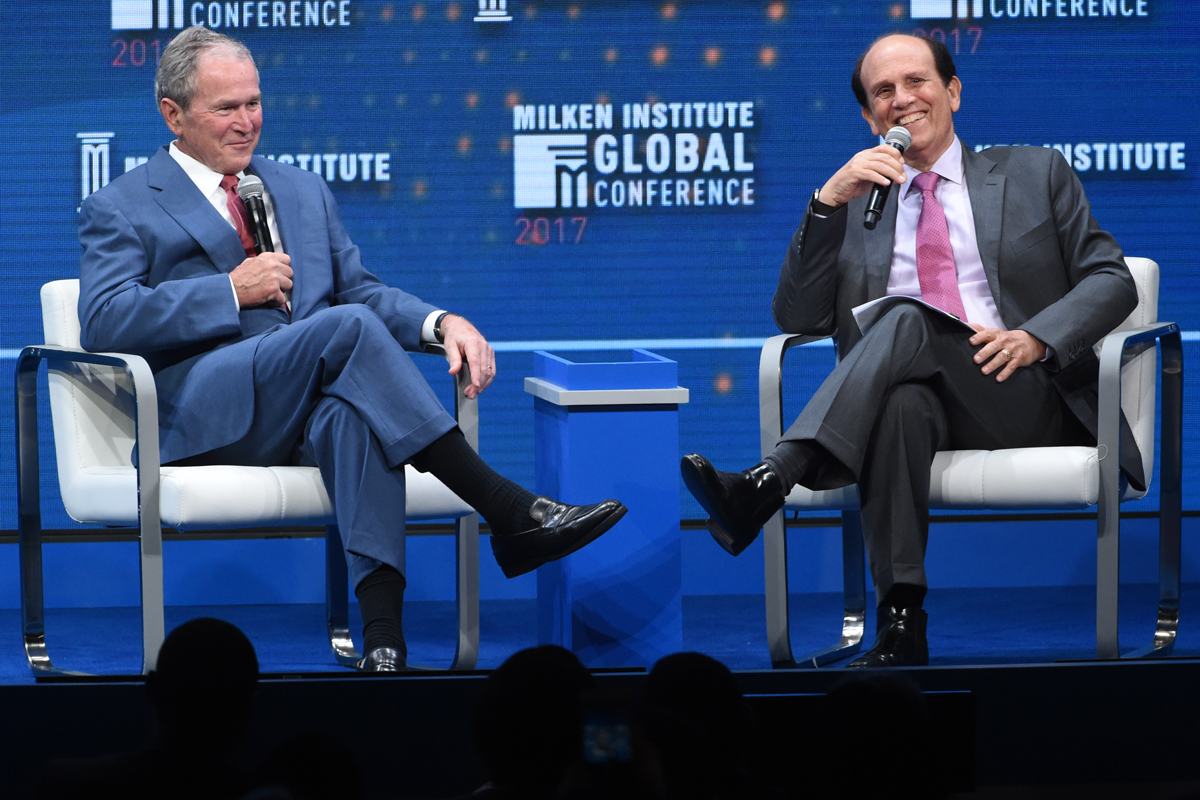
Former President George W. Bush participated in a conversation with Michael Milken, chairman of the Milken Institute, at approximately 1:30 p.m. Wednesday.
At the beginning of the discussion, the two discussed one of the more positive element’s of the 43rd president’s legacy, increasing foreign aid to the African continent.
“I believe all life is precious, and I believe we’re all God’s children,” Bush said, explaining his commitment to Africa.
Bush hopes to prevent the current administration from cutting foreign aid to Africa.
“My mission today is to … urge Congress not to stop the funding on a program that’s effective,” Bush said, appearing in the International Ballroom of the Beverly Hilton.
—
Actor Chris Tucker, in attendance at the Milken Institute Global Conference, expressed interest in visiting Israel.
“I haven’t been to Israel, but I want to go…So, I’m a Christian, I want to go visit the Holy Land…I was raised in church, my mama raised me in church. [I value] my spiritual side. It’s so important to stay balanced,” he said in an interview with the Journal.
Tucker goes to church “every Sunday,” unless he is on the road for work, he said. He attends a Church of God in Christ (COGIC) congregation. In the photograph above, he appears with fellows from Israel from the Milken Innovation Center.
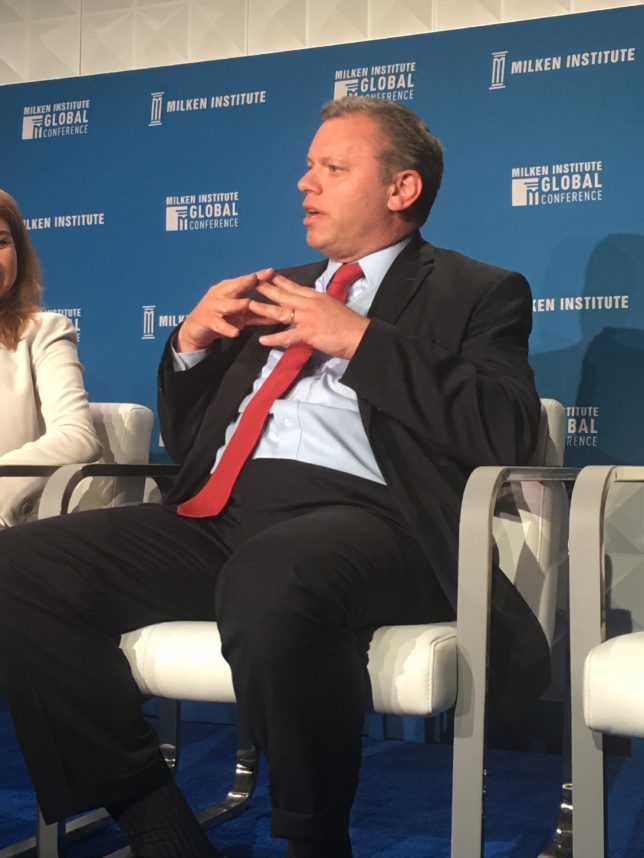
“I have no doubt California can stand up to its [water shortage] challenges,” Eli Groner,Israel Prime Minister’s Office Director General, said, appearing on a May 3 Milken Institute Global Conference panel titled “Start-up Nations: Creating Laboratories for Developing Economies.” “It has been done, can be done, but it takes real focus.”
Joining Groner on the panel were Jeremy Bentley, Citi Israel head of financial institutions and public sector; Clare Akamanzi, CEO of the Rwanda Development Board; Richard Blum, chairman of Blum Capital, a member of the board of the Simon Wiesenthal Center, husband of Sen. Dianne Feinstein and former chair of the UC Board of Regents; Angela Homsi, director of the Angaza-Africa Impact Innovation Fund; and Karen Ross, secretary of the California Department of Food and Agriculture.
Glenn Yago, senior fellow at the Milken Institute and senior director at its Israel Center, moderated the discussion.
Seated in the audience, Rabbi Abraham Cooper of the Simon Wiesenthal Center said he wished supporters of the Boycott, Divestment and Sanctions movement had been there, so they could hear representatives of Africa discuss the work they are doing partnering with Israeli businesses.
“This is reality, and BDS is ideology,” Rabbi Abraham Cooper of the Simon Wiesenthal Center said. “It’s a shame.”
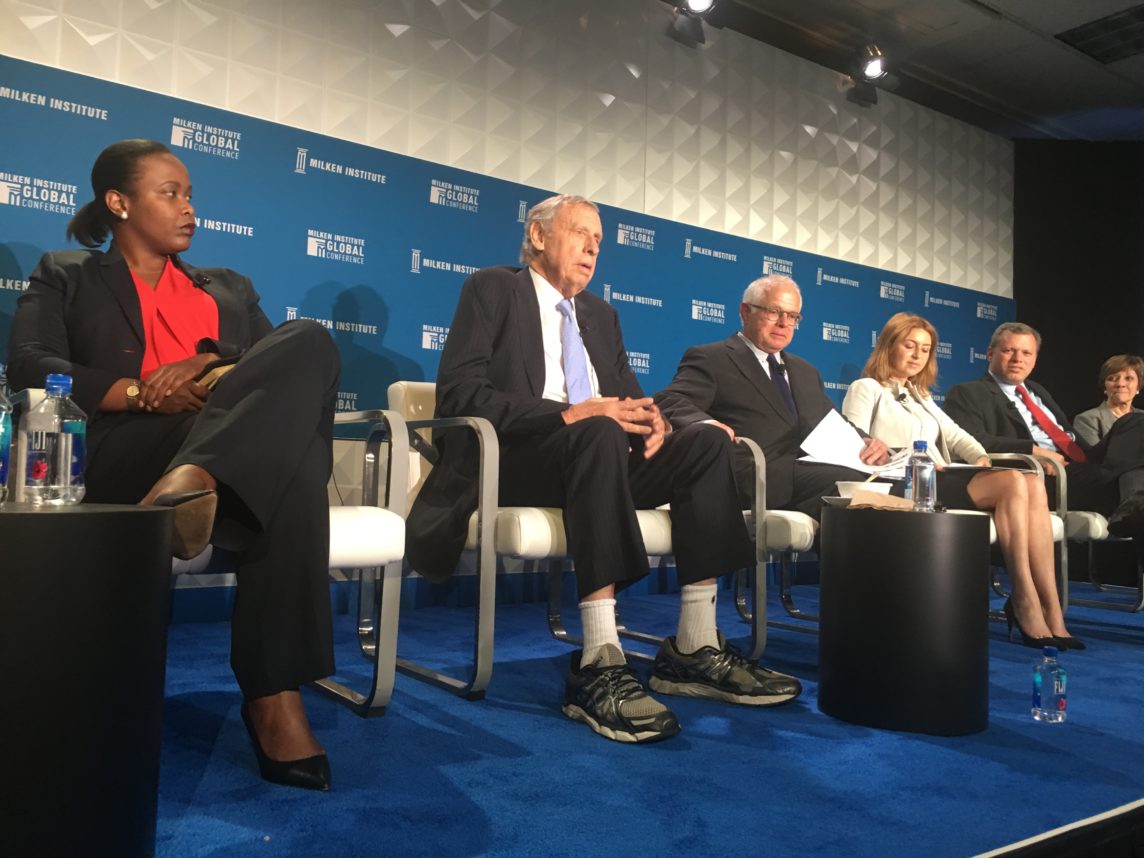
On Wednesday, Michael Milken, chairman of the Milken Institute, conducted a conversation with former President George W. Bush. The two discussed immigration, the Middle East, W. Bush’s passion for painting and more.
—
“That’s what this whole conference is about in some way – markets,” Adam Silver, NBA commissioner, said in a May 2 panel titled “Commissioners of Sport: Agile Leadership in a Competitive World.”
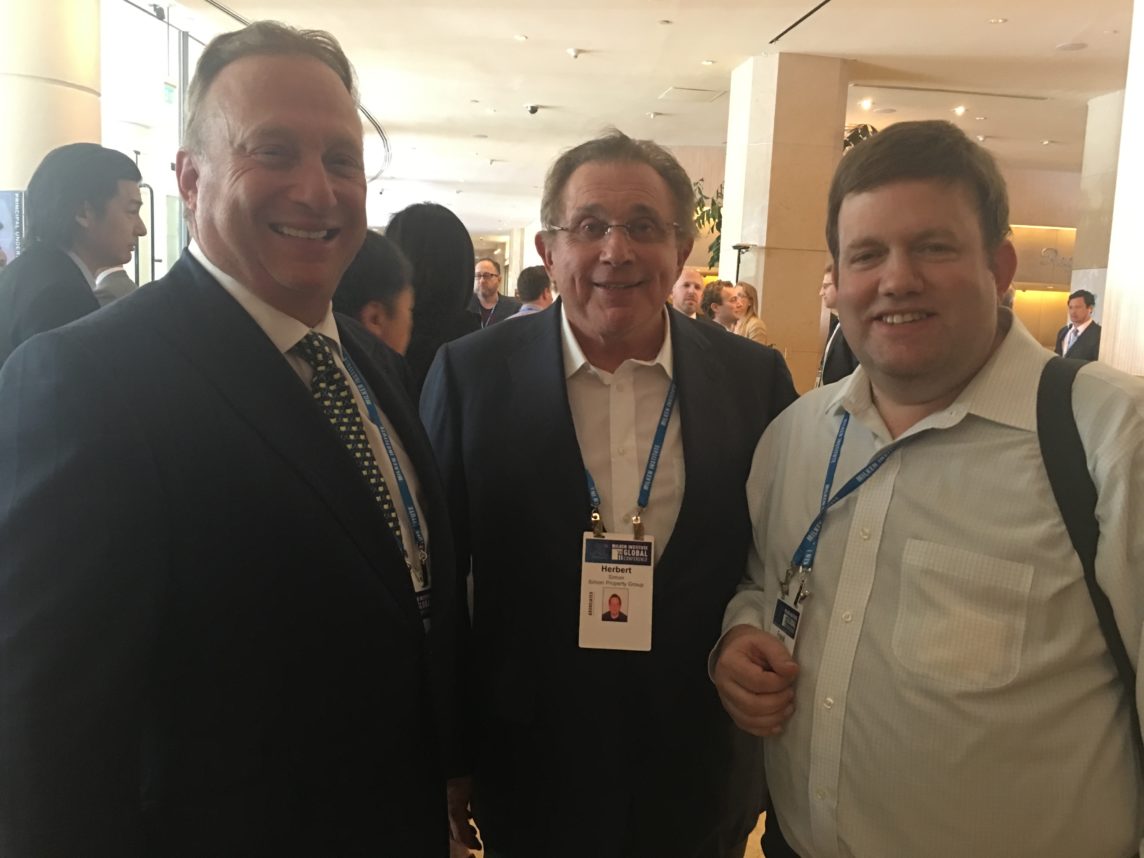
On May 1, during the Milken Institute Global Conference, U.S. Treasury Secretary Steve Mnuchin spoke of the effectiveness of policy implementing sanctions against terrorist organizations or countries sponsoring terrorism, including Iran.
“These sanctions really do work [on countries such as Syria],” he said in an interview with Maria Bartiromo of Fox Business Network, appearing the first day of the three-day conference. “When you cut off the money to terrorist organizations, you have a big impact and I think you saw this in the case of Iran.
“The only reason Iran came to the table to negotiate was because of economic sanctions on them,” he said, “and that’s what created the incentive.”
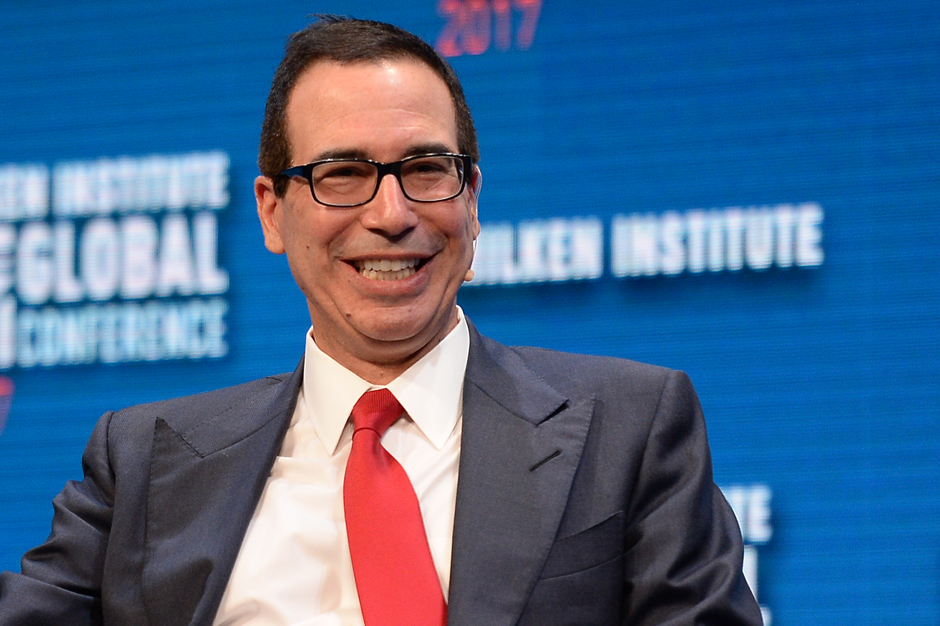
In an interview with David Rubinstein, a billionaire financier and philanthropist who has been a supporter of Jewish life at Duke University, Wilbur L. Ross, Jr., U.S. secretary of commerce, said he is hopeful President Donald Trump will have a positive impact on the American business community.
“Every business executive I see, even ones who have specific complaints…every one of them is very encouraged by the new president,” Ross said on Monday afternoon during a Global Conference lunchtime session.
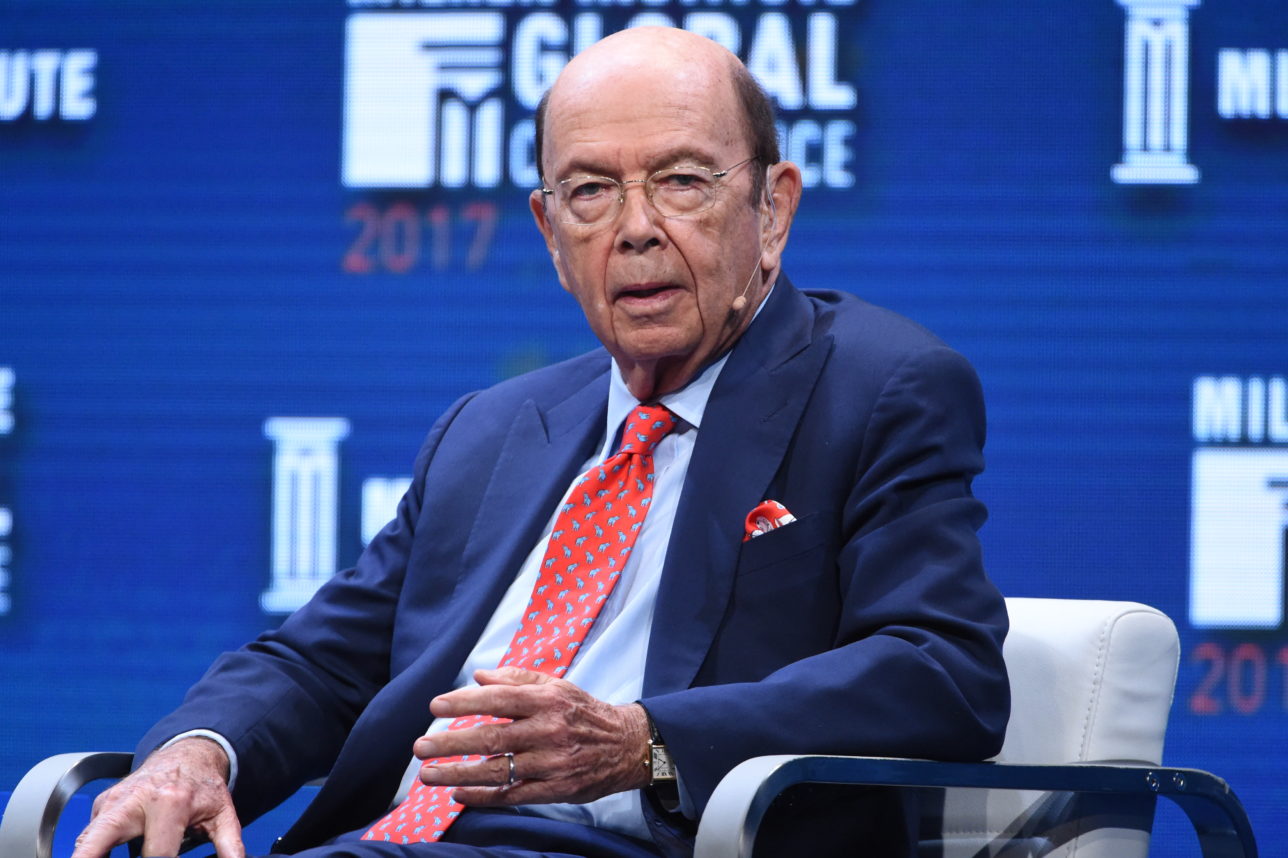
This year’s conference, held April 30-May 3, drew more than 4,000 attendees from 48 states and more than 50 countries. 75-percent of the speakers were new speakers, according to the Global Conference, which was held at the Beverly Hilton hotel in Beverly Hills.

Jamie Dimon, chief executive of JPMorgan Chase, has advised the president on business matters, such as the China currency manipulation issue. On Monday, Dimon appeared in an interview with Willow Bay, dean of the USC Annenberg School of Journalism.
“I was not a Trump supporter, but he asked me to serve in this [the president’s business strategic advisory council]. I was criticized by a lot of people, including one of my daughters…[But] I’m a patriot. I am going to try the best I can to help my country,” Dimon said.
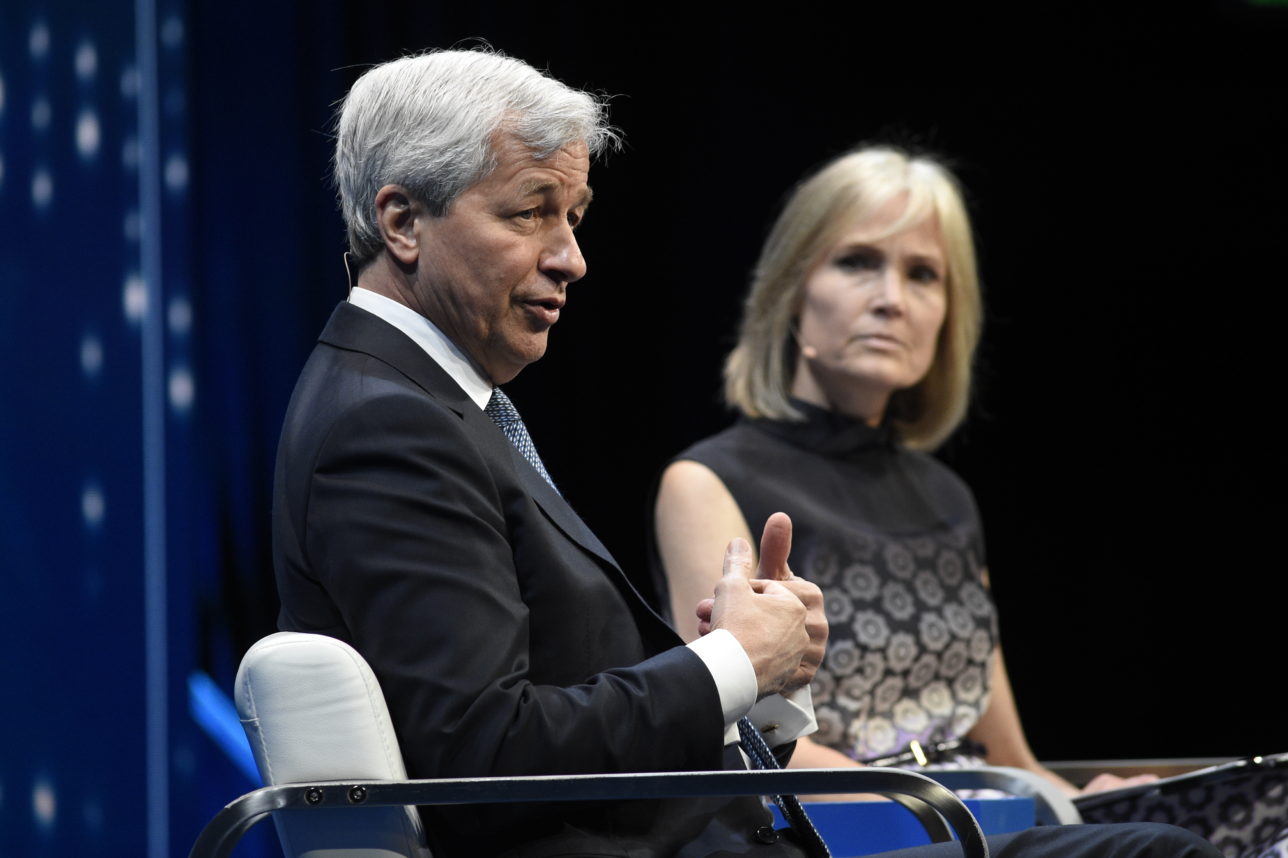
A dinner session on Monday featured Jon Favreau, J.J. Abrams and Apple executive Eddy Cue.
Favreau, director of “Jungle Book,” a live action reimagining of the classic animated film, said he heeds to the philosophy of making the old new again.
“[Telling] the old stories and giving it a new look, using new technologies and new settings,” is rewarding, Favreau said, appearing in a conversation titled “Multi-Hyphenates.”
“I think ‘multi-hyphenate,’ is a term for a lucky person with ADD,” Abrams, director of “Star Wars: The Force Awakens,” said.
Abrams spoke of moviegoing as a “communal experience,” while addressing the phenomenon of people opting to watch new releases at home.
“We are desperately working to give people something worthy of their time,” Abrams said.
Favreau, on making the film, “Chef,” said he appreciated the opportunity of becoming acquainted with real chefs.
“As a filmmaker, you have access. When you say you are directing a movie, something about the magic of the movie business, it opens up doors and you can sit and talk to the top people in each of these fields – futurists, chefs, soldiers, police officers, generals. They will talk to you and give you their perspective. It’s incredibly fulfilling. For me to get into that [when working on ‘Chef’], just chopping shallots and that mindfulness brought to the work, it was very meditating,” he said. “It was very fulfilling.”
Both Abrams and Favreau are Jewish.

Check back for updates.























 More news and opinions than at a Shabbat dinner, right in your inbox.
More news and opinions than at a Shabbat dinner, right in your inbox.